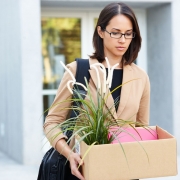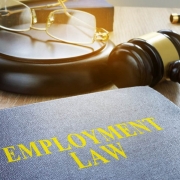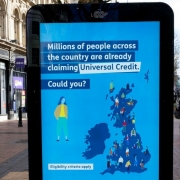The Strange Reality of Employment during the Pandemic
The response towards COVID-19 mirrored most people’s naturally cynical expectations. The UK was almost completely unprepared at that start, the response was improvised without much planning, and then most of the populace fortunately and very Britishly just hunkered down to get on with it, save for some defiant quarantine-breakers. As long as most of us can give a good moan about it, by and large we are now on a downhill trend with a bodycount that betrays the ineffectiveness of the early response – and a fresh new pile of debt as the state had to step in to subsidize the economy.
Like for example, both World Wars. Previous notable pandemics like the 1968-70 flu pandemic likewise emptied out factories and forced half staffing to limit the spread. Things have yet to become truly irrecoverable. It may take years of recovery, but the engines of commerce shall surely turn again as long as people don’t make things worse for themselves.
COVID-19 is not a hoax or a conspiracy. There have been many other pandemics like it before, the difference why those previous pandemics seem to have done comparatively little damage is from how we are looking at it from the inside. Damage mitigation strategies that succeeded get little news.
Also, there were far less people in previous decades that suffered pandemics and they were taught by their parents to treat quarantines seriously, rather than born a world which had effectively eliminated most contagious killers like smallpox, measles, typhoid fever, cholera, etc. – which had been seasonal epidemics through many centuries.
There is little need to stress over the long-term economic prospects as that is the realm of the subconscious cultural response. Consumer confidence matters. For the long term to become viable, first we must deal with short term concerns. Worker and employer rights should be maintained, or else they aren’t rights at all.
Right of Employees and Employers
It cannot be Employees vs Employers in this case because lives cannot be spent to fuel the economy in the same way some comic book tribe throwing virgins into the volcano to appease their angry volcano god. At the same time however, the nation can’t keep itself shuttered for long before collapsing.
Employers have a ‘duty to care’ for staff, consumers, and anyone else who might visit their workplace. While it may be difficult to prove legally that someone entering contracted coronavirus in your place of business, employees should not be risked and then serve as a vector for additional infection.
A business without employees cannot operate. A business that risks its employees’ health itself may be risking legal action. But bankrupting vulnerable businesses will also put more people out of work.
A more open-minded view is that every employee is also a consumer, so the best thing for national recovery is to have as many people primed to keep buying.
The Survival of Small Businesses
Small businesses employing less than 250 people employ most of the workforce in the UK – about 23 million people. Survival strategies for small business are outside of the scope of this article, however.
This is merely to emphasize that at this point, we should not take an adversarial position. The eternal enemy is bureaucracy. Employers should be able to claim up to 80% of wages they pay for employees on furlough, and employees ought to keep their jobs even when most of the business must shut down under the Coronavirus Job Retention Scheme.
If you find yourself having difficulty claiming your grants or emergency loans, collective political action with legal support and media exposure may be required to communicate the urgency of your need to your local government units and banking representatives.
Being Forced to Come to Work
Who among the employees are to be sent on furlough are on the discretion of the employers, with importance towards those most at-risk populations. Younger workers may still be required to come to work, at most 50% of regular staffing to promote social distancing.
When you do report to work, remember that your employer is obligated to make your workplace as safe as possible. Being forced to work at threat of being fired is unlawful. You are supposed to be protected against
- Constructive dismissal or being pressured to resign or leave rather than being dismissed
- Disability discrimination
- Age discrimination
- Breach of health and safety laws
If you are living with someone who is vulnerable (pregnant, old, disabled or suffering from ill health), it may be unlawful for your employer to insist you come to work and risk their health.
If you are self-isolating due to symptoms or advised by medical authority, you are entitled to statutory sick pay. You may not be dismissed for self-isolation due to the Employment Rights Act 1996.
Harassment of At-Risk Essential Workers
If you are a medical worker or an employee in an industry deemed essential and you are thrown out of your residence or denied access to services because people fear catching COVID from you, that is unlawful.
If you are being harassed or attacked, that’s a criminal offense and seek help immediately. It may protect other at-risk workers from further attacks by serving as an example.
Anti-Asian Sentiment
This is just outright an unjustified crime and unfortunately the stress of coronavirus is causing it to spike. Stay safe, prefer to move in groups, and make sure you can provide video or recorded evidence. It is unfortunate that most of these attacks are also hit and run and prosecution is difficult when the perpetrators can’t be easily identified.
Coronavirus Scams and Bad Advice
It is advised to be very careful and don’t fall for any quick solutions. Scammers and hackers are using the coronavirus as a ‘hook’ to commit fraud and steal critical personal information.
It will be difficult to recover damages after a scam, and following bad medical advice can kill. If it sounds too good to be true, it probably is. The government’s anti-fake news unit is having to deal with 10 new cases of coronavirus misinformation per day. This is a time when it is best to be skeptical of any easy solutions.
Be careful of those that prey on those trying to access economic grants and relief supplies. If you receive a suspicious email urgently asking you to send money or provide account numbers and personal information for verification, those are likely to be ‘phishing’ attempts. Never oblige anyone attempting to gather your financial data.
Websites that will give reports on potential coronavirus infected in your workplace or neighborhoods in violation of privacy in exchange for payment or sign up login information are just taking advantage of fears and a hunger to obtain privileged information that don’t exist.
Emails may pretend to come from trusted organizations that ask you to click on a pdf or word document for ‘more information’ that will launch malware to compromise your system and harvest your passwords.
If someone is selling you home testing kits, those are fake. The only possible home kits are sample collection kits and the contents to be mailed to an accredited testing laboratory, and they require a signed doctor’s order. There is a global shortage of coronavirus testing – not because of a lack of kits, but a in hard limit in lab processing. No home kit can tell you if you have coronavirus.
Be careful of predatory loan packages.
Desperation signals those who would take advantage of it. Limit exposure both in public and in social media. If you are unsure, it is best to send your own email to official channels directly instead of replying to a suspicious email. This isolation may also be taking advantage of scam calling – for some people may be the only human contact they have in weeks.
Beware of fake sites selling medical supplies and cures. Do not purchase cures or prophylactics that you can consume.
There are as of yet no real solutions, just mitigating factors, and nothing that can be done by throwing enough money at it. Self-isolation and protective personal equipment (facemasks, goggles, etc.) and routine hand washing may be boring but they work.
Scammers are plentiful and hard to prosecute because they quickly vanish after taking your money. The only real way to protect yourself is not to play their game.
The Strange Reality of the Pandemic
The proper response to COVID-19 is not panic. As long as certain essential services are maintained, it has been shown that most people can go for months without societal collapse and rioting. COVID-19 has exposed the reality of who are actually the most essential people in this modern digitalized world of ours. It goes:
- Nurses and Doctors
- Police and Military/Security
- Truck Drivers/Mail and Delivery workers
- Market Retail workers
- Food Processing/Factory workers
- Media/Information Technology workers
- Scientists and Researchers
- Politicians
Let us discuss this weirdness in order.
- Nurses and doctors obviously are needed in times of pandemic. They are in fact heroes of this age, due to the extreme health risk they experience, the high stress and long hours they must work, and then the ingratitude, harassment, and being thrown out of their homes they suffer from others who don’t want to catch the virus from being around people who are working hard to save lives.
- Someone has to enforce quarantine and keep public order from collapsing. Police workers and volunteer community guards are also under great health risk, while it’s vital for national security that particularly dumb criminal and insurgent elements don’t take advantage of this weakness to pull terrible shite. One surprising consequence for this pandemic has been the global cease of warlike behavior as people hunker down against the common enemy to all humanity.
- Without logistics and being able to move goods and supplies around to where it is needed, society just stops. Period. Transport needs to move, and packages need to be delivered. As long as people can buy online, they won’t miss being able to shop and the sense of normalcy is maintained.
- People need their groceries and this is the one unavoidable reason for people to leave quarantine. These workers are second to nurses and doctors in the risk of contracting COVID-19 and unintentionally passing it on. And they are already getting killed for politely asking people to obey simple mask orders.
- Even the MI5 says that “Britain is four meals away from anarcy.” Neil Gaiman and Sir Terry Pratchett notes that “It has been said that civilization is twenty-four hours and two meals away from barbarism.” The nugget of truth is that as long as people can eat well and feel confident there will be more there is no reason to start to get desperate and start hoarding, which would create the situation they are hoping to avoid.
Factory workers are the unsung heroes keeping food prices level and ensuring that society keeps plugging on. They too suffer higher COVID-19 risks – one person infected in the plant can force a total shutdown. Without them, it is a ticking time bomb before things start being on fire.
- Access to the internet and critical information is what allows people to stay sane, still shop and receive goods, and keep social contact while maintaining social distance. Without this, people will feel confined and forced to go out in search of something else to keep from going crazy with cabin fever and the tempers of their family.
Banking and online financial services could also be placed under this category as quick access to funding and the information exchange is critical to the peaceful continuation of the economy during a global crisis.
- Figuring out COVID-19 and progress on the vaccine and the end to this nightmare can only happen if we allow our clever boffins to do their work without interruption.
- And surprisingly, all over the world, it is being proven that as much as you may hate your politicians and feel that they are dishonest and self-serving – there is a vast difference between having at least a nominally competent leader and someone that is actively sabotaging their own nation’s attempts at staying alive.
Politicians should at least be hoped to do no extra harm.
The political and societal impact of the 2020 pandemic is also going to take decades to fully comprehend. This is one of the world’s watershed moments.
If you have a job during this period, the best thing to do is to stay safe and try not to increase the risk for others. If you are unable to work, read up on financial amelioration measures from legitimate sources. If you own a small business, it may be difficult right now to obtain loans and you may have to reach out to others in a similar situation to collectively present the urgency of your needs to banks and the local government.
–
For advice and help contact Employment Solicitors
- 214Shares







